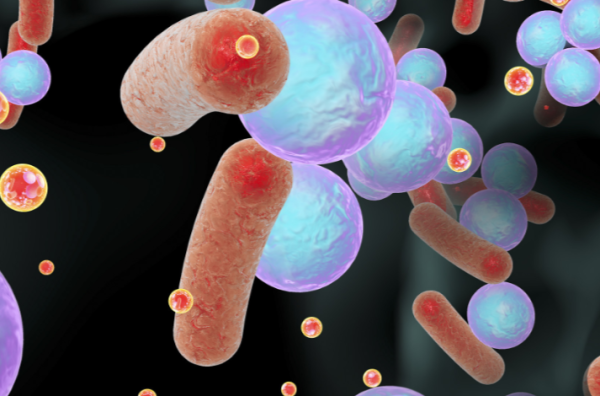Antimicrobial Resistance (AMR)
AMR is a serious threat to global health that requires urgent action.

AMR is a serious threat to global health that requires urgent action.

AMR is a growing problem that threatens healthcare professionals' ability to effectively prevent and treat an ever-increasing range of infections caused by bacteria, parasites, viruses, and fungi.1,2
AMR develops when microorganisms are able to overcome the effects of the antimicrobial therapeutics that would have previously killed them or prevented their growth.1,3,4
An example of this is when bacteria develop antibiotic resistance, which emerges when bacteria develop characteristics that allow them to survive exposure to the antibiotics used to treat bacterial infections, eventually making the antibiotics ineffective for treatment.5
According to the Centers for Disease Control and Prevention (CDC), antibiotic resistance contributes to at least 2.8 million antibiotic-resistant infections and 35,000 deaths each year in the United States (US).1 However, according to recent estimates, up to 153,000 people in the US may die annually due to multi-drug resistant infections.9
For example, methicillin-resistant Staphylococcus aureus (MRSA) and Streptococcus pneumoniae are considered leading causes of bacterial skin infections and community-acquired pneumonia, respectively, and have developed resistance to many clinically relevant antibiotics.1
In addition, antibiotic resistance of Clostridioides difficile has contributed to the spread of C. difficile in the healthcare setting.10 During 2017, around 223,900 people in the US required hospital care for C. difficile infection and at least 12,800 people died as a result.1
AMR has the potential to affect any person at any stage of life and jeopardizes the efficacy of many aspects of modern healthcare. Without effective antibiotics, many medical interventions such as joint replacements, cancer therapy, organ transplants and treatment of chronic diseases will be less safe and effective. The need for action to combat a developing global health crisis is imperative.1-3
There is no excuse for inaction. The AMR crisis is already here and change is overdue.1,3,4
Despite efforts and actions taken in recent decades, the trends in AMR show no signs of slowing down.4,11
The problem of AMR is multifaceted. To address it will require widespread change, including a shift in agricultural practice, improved antibiotic use and prescribing, increased patient education and the implementation of appropriate global surveillance systems.1,3,4
Each of us must play our part.